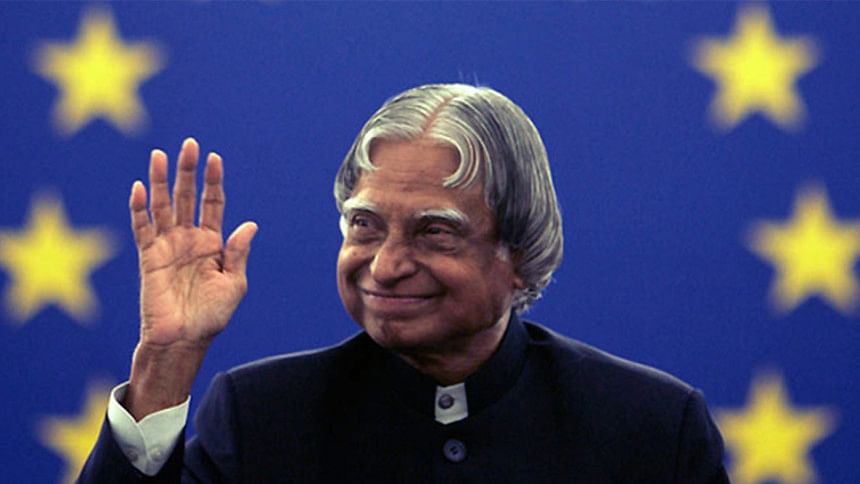APJ Abdul Kalam: Inspiring till His Last Breath

It's rare that the death of a former Indian president, such as APJ Abdul Kalam, would be mourned all over the world, being fondly remembered by many who wouldn't bat at an eye at the passing of other politicians. It was also, perhaps, a kind of divine intervention that his final moments would come while delivering a lecture, spending his last breath inspiring others as he had done throughout his life.
APJ Abdul Kalam was the 11th President of India, serving from 2002 to 2007. The man wasn't a career politician, having spent four decades working at the Defence Research and Development Organisation (DRDO) and the Indian Space Research Organisation. He played a crucial role in both India's first nuclear weapons as well as their first space programmes. But perhaps one of the main reasons Abdul Kalam is one of the few universally loved politicians, who was voted into power by both of India's two biggest parties, Congress and BJP, is because he rose from complete obscurity to one of the country's pioneering scientists.
He was born in 1931 to a Muslim family in Tamil Nadu, struggling with extreme poverty. Unlike the stories you hear where kids from poor families win against their trials to do very well in school, what makes Kalam's story stand out is that he did not do well in school. The teachers noted a lot of effort and desire on his part but it just wasn't enough to truly rise above the rest. This carried onto university, where he failed to fulfil his dreams of becoming a fighter pilot in the Indian Air Force. He had placed ninth in the selection test and they were only taking eight cadets that year.
Failing your dreams by the narrowest of margins is something that would demoralise most. But his indomitable spirit to take the trials life had thrown at him made him who he was. Kalam took up jobs in the Military Science divisions including the DRDO, being among the first people to lead a self dependence movement that allowed India to create their own equipment rather than just import them. His most valuable contribution would come when he played a central role in developing Pokhran-II, India's first successful nuclear test in 1998, the first since the initially failed attempts in the 1970s.
Despite being an example of social mobility at its finest, starting as the son of a poor ferryman to becoming the President, Kalam demonstrated the sort of humility that made him loved and admired instantly. Whenever he spoke, it was clear that the man remembered his roots and the struggles that had brought him where he was. One of his goals was to inspire others, as he himself had known what it was like to be faced with adversities and he wanted to help others get through them. That mentality made his autobiography "Wings of Fire" a must read for anyone lacking motivation and belief in themselves.
There are some men who will never be forgotten. For his unique example of perseverance and professional success that came with humility and the ability to inspire, APJ Abdul Kalam is definitely on that list.
Rayaan Ibtesham Chowdhury is a 19 year-old with pent-up years of teenage angst who loves to complain about most things while listening to blues guitar tracks. Ask him to stop writing at [email protected]

 For all latest news, follow The Daily Star's Google News channel.
For all latest news, follow The Daily Star's Google News channel. 





Comments